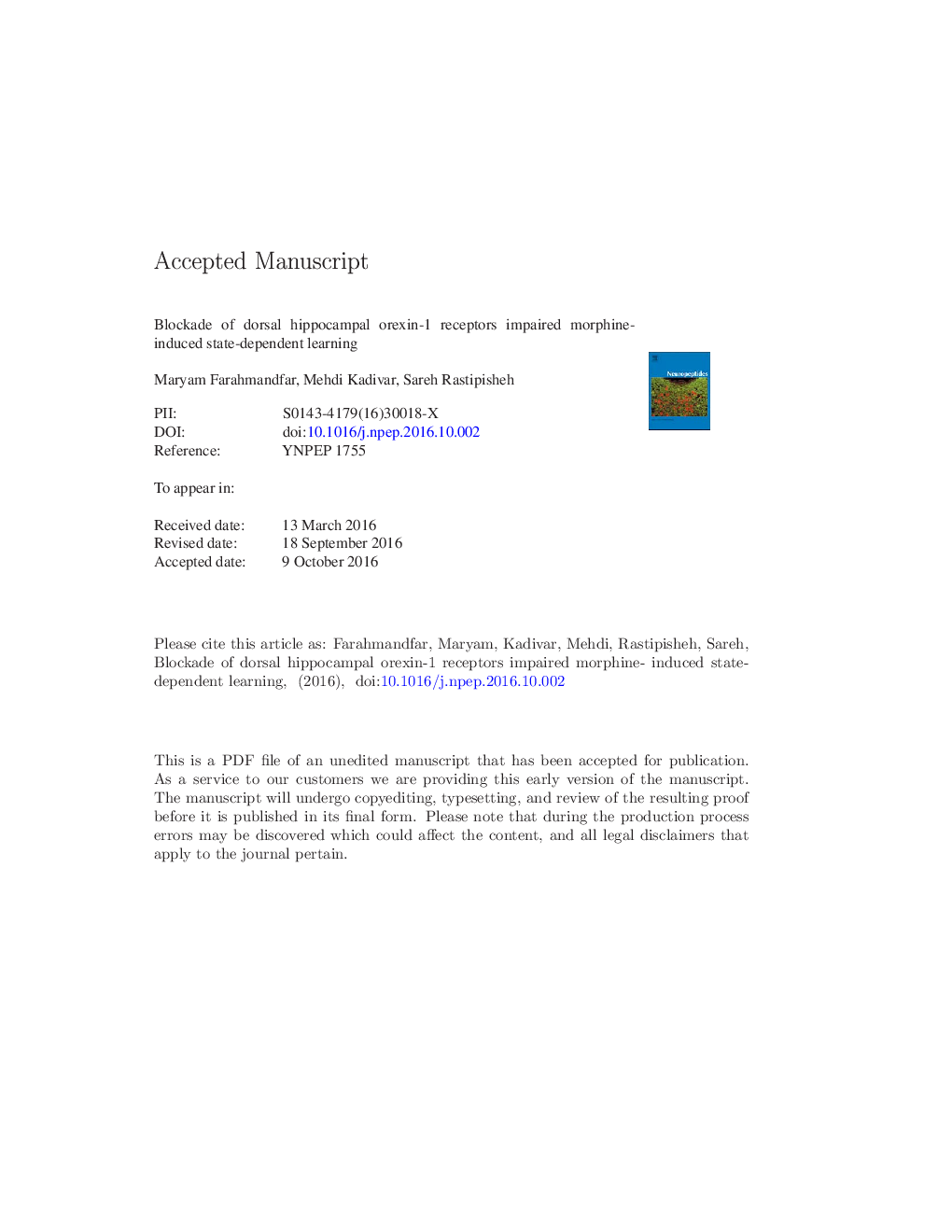| Article ID | Journal | Published Year | Pages | File Type |
|---|---|---|---|---|
| 8633834 | Neuropeptides | 2016 | 36 Pages |
Abstract
Behavioral abnormalities associated with opiate addiction include memory and learning deficits, which are the result of some alterations in the neuromodulatory systems. Recently, orexin has shown to influence drug addiction neural circuitry, specifically in mediating reward-related perception and memory. To explore the possible interaction of orexinergic and opioidergic system on modulation of learning and memory, we have investigated the effects of intra-dorsal hippocampal (intra-CA1) administration of orexin-1 receptor agonist and the competitive orexin-1 antagonist, SB-334867, on morphine-induced memory impairment by using step-down passive avoidance task in mice. Pre-training injection of morphine (5Â mg/kg, i.p.) impaired memory, which was restored when 24Â h later the same dose of the drug was administered. Pre-test administration of orexin-1 (0.5, 5 and 50Â pmol, intra-CA1) had not a significant effect on the retention latency compared to the saline-treated animals, but it restored the memory impairment induced by pre-training morphine (5Â mg/kg, i.p.). Pre-test administration of SB-334867 (10, 20 and 40Â nmol, intra-CA1) by itself decreased the retention latencies of passive avoidance task. Co-administration of orexin-1 (0.5, 5 and 50Â pmol, intra-CA1) and morphine (1Â mg/kg, i.p.) on the test day induced morphine state-dependent memory. Conversely, pre-test injection of SB-334867 (10, 20 and 40Â nmol, intra-CA1) inhibited the orexin-1-induced potentiation of morphine state-dependent learning on the test day. It is concluded that dorsal hippocampal orexin-1 receptors may be involved, at least in part, in morphine state-dependent learning in mice.
Keywords
Related Topics
Life Sciences
Biochemistry, Genetics and Molecular Biology
Endocrinology
Authors
Maryam Farahmandfar, Mehdi Kadivar, Sareh Rastipisheh,
